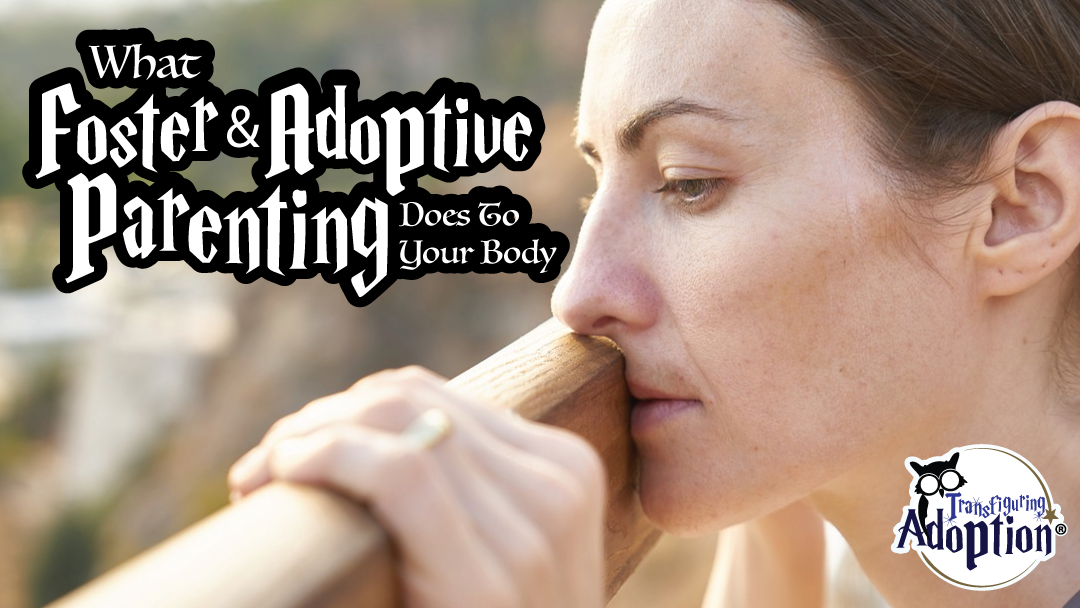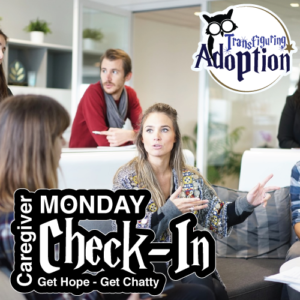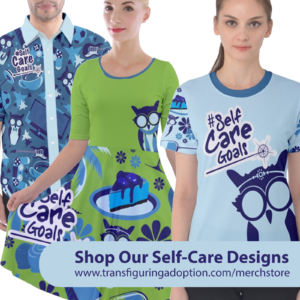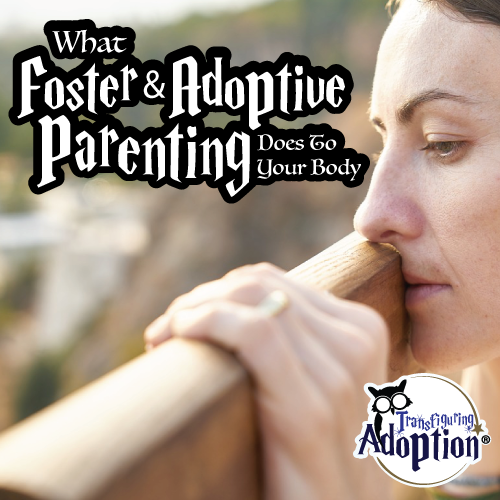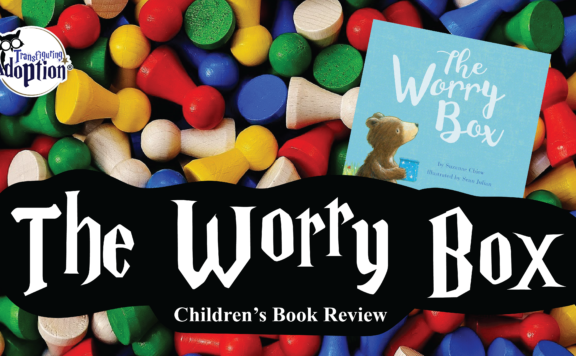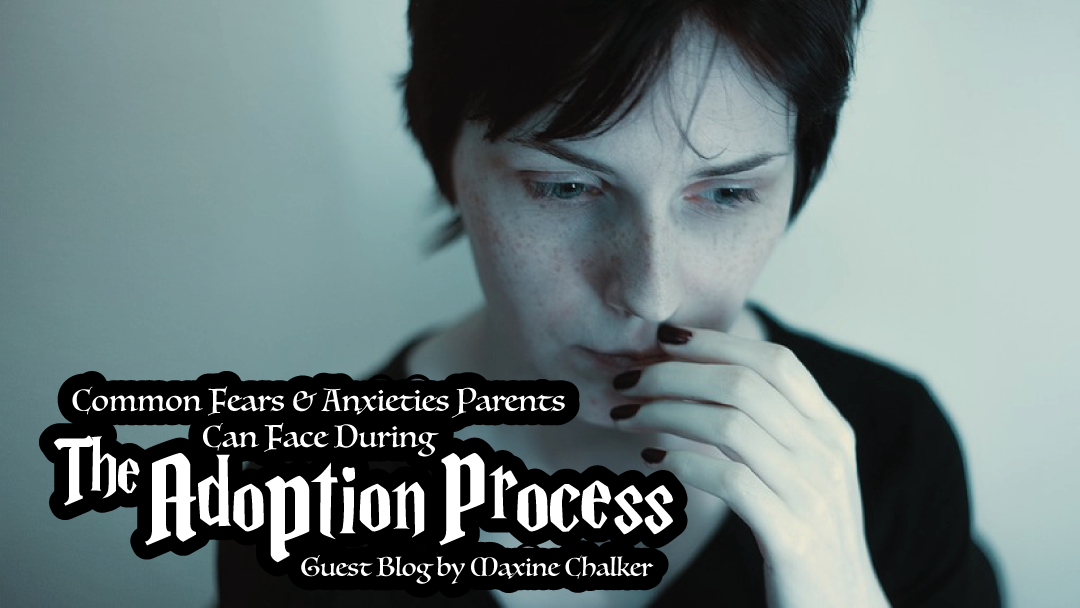For six months out of 2017, Darren and I, Margie, had a total of six kids we were parenting who, between them, had multiple needs which required us to be in a stage of constant high alert. We were never able to fully relax when children were around, which was pretty much always. In December, two of them moved on to a different home, and we realized just what a toll those six months had taken on our body. For almost two weeks, we felt a constant desire to sleep. As we were able to let our guard down just slightly, our bodies let us know that they did not appreciate the beating they had taken over those six months.
What Happened to Us?!
Parenting is stressful, but parenting children who have experienced complex trauma, and who need high levels of supervision as a result, leads to parents being in a constant state of high alert. If this goes on for an extended period of time, the caregivers begin to have some of the same physical and emotional responses that have occurred in their children.
What are some physical and emotional issues seen in caregivers?
- Post Traumatic Stress Disorder (PTSD) or Secondary PTSD
Foster children are nearly twice as likely to develop PTSD than active combat veterans. Caregivers can experience prolonged exposure to the traumas their children have endured, or experience several traumas themselves related to fostering or adopting, and begin to show symptoms of PTSD such as intrusive thoughts, negative thoughts and feelings, avoiding reminders of trauma, and symptoms of being on high alert. - Compassion Fatigue
Caring for a child who has experienced trauma over a long period of time can be very heartbreaking and emotionally challenging. If you have started to lose compassion for your child’s history, you may be experiencing compassion fatigue. Compassion fatigue symptoms include chronic physical and emotional exhaustion, depersonalization, feelings of inequity toward the therapeutic or caregiver relationship, irritability, feelings of self-contempt, difficulty sleeping, weight loss, headaches, and of course, decreased compassion. - Depression
Caregivers can begin to feel hopeless and helpless about their child’s situation, healing, behavior, or growth. - Anxiety
Parenting comes with an endless list of things to worry over, and fostering or adopting can add more weight or items to that list. - Irritability
Ongoing stress, continuous sensory input (nonsense chatter, constant loud noise, etc.) coming from a traumatized child, constant battles with health, education, or government systems to advocate for a child, and so much more start to wear on foster and adoptive parents leaving them irritable, overly emotional, or short-tempered. - Health problems
Higher, sustained levels of stress lower the body’s immune system, resulting in more frequent illness. It can cause weight gain, heart disease, body aches, fatigue, nervousness, sleep disturbances, digestive problems, and other physical issues. - Withdrawal
Withdrawal is common among caregivers. It could be due to a lack of energy, lack of time, or an inability to relate any longer to others in their social circles. Sometimes it’s because it is too difficult to go anywhere with children who are triggered by situations outside of the home environment. Caregivers at times will withdraw themselves emotionally in their home as well due to a lack of reciprocity from the child, and they begin to feel more like they are just fulfilling job duties instead of being a nurturing parent figure. - Isolation
While withdrawal is often a choice of an individual, isolation results from those around someone removing themselves from the individual’s life. It may be that friends with children begin to stay away as fears creep in that being around your child will negatively impact their children. Maybe folks stop hanging around because there is sometimes a lot of drama involved with fostering and adopting. Yet others begin to question caregivers because they don’t see the same behaviors that the parents see at home, and out of lack of knowledge about trauma and attachment, they begin to suspect the caregivers are the problem. - Hypervigilance
Do you seem to constantly be at a heightened state of alert? Do you jump at every sound and run to investigate? Does any movement out of the corner of your eye cause you to twirl around to check for safety? This is all very common in traumatized children, but caregivers often start to respond the same way, even when the children aren’t around.
Many of these conditions overlap, some are symptoms of others, and they are all on a spectrum from mild to severe. Will all foster and adoptive parents develop these symptoms? No, but many will have some degree of some of the aforementioned physical and emotional responses. It depends greatly on the needs of the children in a home, the intensity of the needs, and the number and ages of the children.
What reduces these impacts?
When caregivers experience these negative impacts on their well-being, their parenting and relationships with children and others are adversely affected. What can caregivers do to minimize negative effects on their physical, mental, and emotional wellbeing?
- Seek therapeutic help.
Caregivers of children who have experienced trauma often find that traumas they experienced and thought they had dealt with are triggered by their interactions with their children. Finding a therapist who is well-versed in trauma can be helpful in processing past trauma in order to find healing and be available to parent better. Other times it is necessary to find a therapist to help talk through difficulties in parenting a child and gain insight into the child’s behavior and how to parent more effectively. - Find support groups locally or online or find an experienced mentor to walk alongside you on your journey of parenting.
While talking to friends and family can sometimes be encouraging, finding others who are experiencing similar triumphs and challenges through fostering or adopting provides the validation and information needed for success. - Develop a stronger support system.
Think about areas in your life in which you could use help in order to free up your mind, time, and energy for caring for your children. Is there a volunteer (or paid if budget allows) tutor who could take the added pressure of helping your child academically off your shoulders so you can focus on relationships? Is there someone who can pitch in with carpooling? Can a friend help you prepare food in bulk and freeze it for easy dinners? Many churches and communities are developing ‘wrap-around services’ where they find and train folks to do these types of things for foster and adoptive families. Each family has a team around them, and each team member is responsible for a different area of the family’s life (childcare, food, housework, encouragement or prayer, carpooling, etc.) Reach out if you need help! - Practice self-care.
I have yet to find a caregiver who has nailed this well consistently. It helps to be creative. It’s not always chocolate, wine, or a bubble bath. What “fills your cup” so to speak and energizes and revitalizes you? The tendency for caregivers is to neglect themselves to the point that nothing fills them up any longer, and they become less and less effective or therapeutic in their parenting, resulting in a damaged, resentful relationship with the child(ren). - Celebrate and recognize small victories and changes with your child to combat depression, anxiety, and other negative emotions.
- Look for opportunities to laugh and have fun.
In our house we had fun making up pretend creatures which lived around our house. Why?! It was simple pretend fun that we could have with our kids and allow us to forget about the daily struggles. Eventually we came up with activities which were playful and addressed trauma-caused behaviors our family experienced.
If you’re interested, we turned these activities into a book so you can bring our “therapeutic” helpful play into your home.
Visit: www.magicalcreaturs.com
Often caregivers wait until they have reached their limit before seeking help or taking a new course of action. Being proactive at the first signs of trouble will help reduce chances of consequences like placement disruption or other major impacts to the family’s wellbeing.
We are here for you! Join other parents in the trenches during our [Monday Caregiver CheckIn] live each week on Facebook at 8pm EST!
Now It’s Your Turn:
Think about these questions and possibly discuss them with a co-caregiver, trusted friend, or a professional, OR begin a discussion here with other caregivers.
- Have you experienced any of the negative impacts listed above through foster or adoptive parenting?
- Is there any negative impacts we failed to mention?
- What have you found helpful in reducing negative effects on your wellbeing?
- What steps can you take increase your wellbeing and your relationship with your child?
